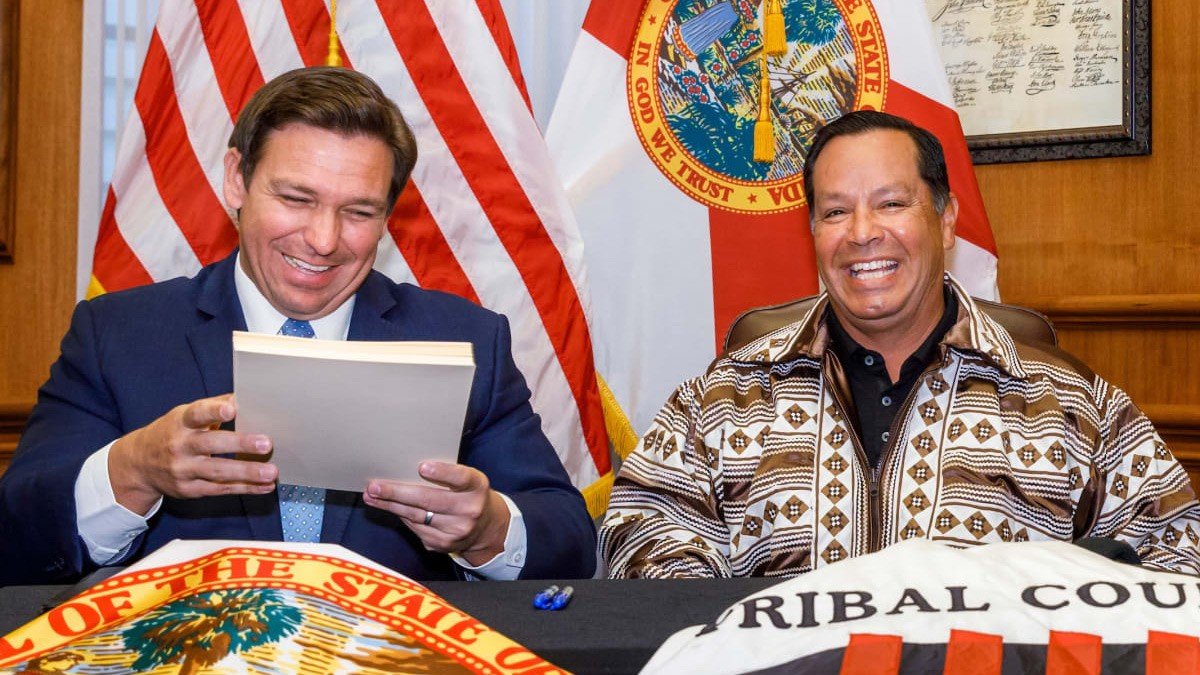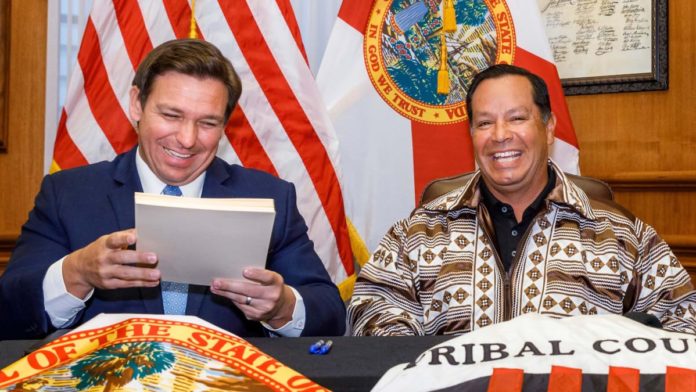A
fter months of debate and lawsuits, sports betting in Florida is now live. Wagering on sporting events is available through the Hard Rock Sportsbook app, allowing users in the state to legally place bets on game lines, spreads, futures, player props, and more.
The launch has been called a “quiet” one by local news and users in social media. Despite the anticipation and controversy surrounding the release of the app, the Seminole Tribe went live with its online sportsbook on Monday with no fanfare, and without commenting on the subject.
Florida’s road to legalizing sports betting has proved to be a bumpy one. Gov. Ron DeSantis first signed a deal with the tribe this spring, which the Legislature signed off in a May special session. But while ensuring these approvals was key, the compact became the target of debate and speculation, which eventually led to a series of legal challenges.

The “hub-and-spoke” sports betting model contemplated in the compact enables gamblers in the state to place online wagers which are then processed through servers on tribal property. Moreover, the compact says these bets can only be conducted by the tribe.
Seminoles are expected to report millions of dollars to the state in the form of taxes, in exchange for the benefits they will receive. The tribe is also now able to offer craps and roulette at its casinos, as part of the extended compact.
Other key points of the agreement establish that the tribe must enter deals to market sports betting with parimutuels, which in turn receive 60% of profits generated by their marketing efforts. The tribe has already announced a series of initial pari-mutuels.
In exchange for the ability to conduct sports betting, Seminoles are expected to pay at least $2.5 billion to the state over the first five years of the 30-year agreement. Last Thursday, Seminoles announced the completion of a $37 million first payment in October.

While the deal has proved to be satisfactory both for Florida and the tribal nation, not everyone agrees it is in the best interest of the state: three lawsuits in total have been filed in an effort to stop the compact, alleging it violates the law.
While a federal lawsuit in Tallahassee, filed by the owners of the pari-mutuels Magic City Casino and Bonita Springs Poker Room, was dismissed last month, others are pending. The owners of the aforementioned gaming venues have also filed a federal lawsuit in Washington, D.C., as have two prominent South Florida businessmen and the group No Casinos.
Some of the arguments being raised are that processing bets through servers on tribal property does not equate to wagering in tribal lands, which would be against the law. Moreover, Magic City Casino and Bonita Springs Poker Room claim that by giving Seminoles the sole right to conduct sports wagering, the state discriminated in their favor, which in turn hurts their operations.
Those pending challenges were filed against the U.S. Department of the Interior, which oversees Indian gambling issues and allowed the compact to move forward. The No Casinos-backed lawsuit has received a November 5th hearing date.
The compact has also found two opponents in mobile sportsbooks DraftKings and FanDuel. Both companies have contributed $10 million each to a committee seeking to get sports betting on the ballot in 2022, challenging the tribe’s exclusive rights to sports wagering in the state. The constitutional amendment would legalize wagering at professional sports arenas, pari-mutuel facilities and statewide via online platforms.
Original article: https://www.yogonet.com/international//noticias/2021/11/02/60013-floridas-tribal-online-sports-betting-live-via-hard-rock-app-amid-legal-dispute
















